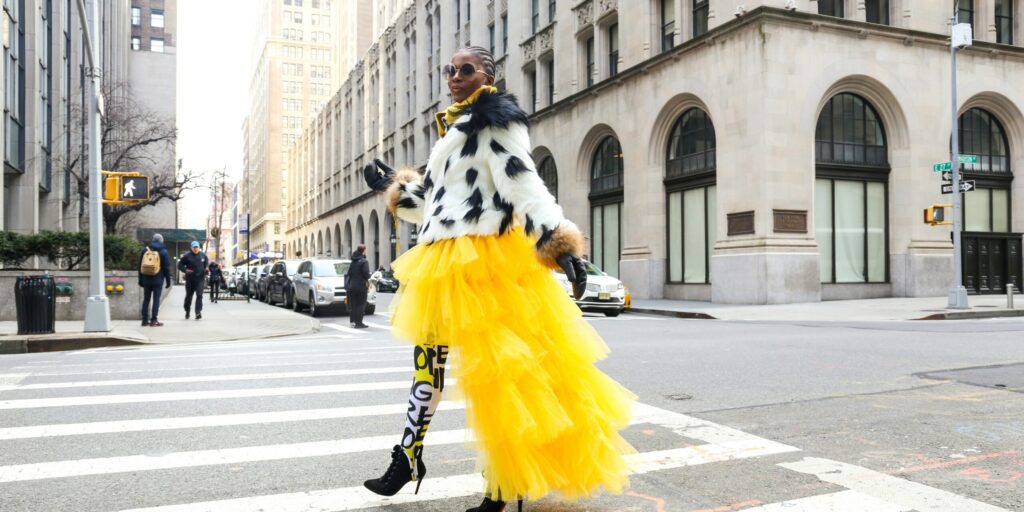New York Fashion Week (NYFW) 2025 marked a transformative moment in the global fashion industry, with sustainability emerging as the defining theme of the season. Designers, brands, and industry leaders collectively emphasized eco-friendly materials, ethical production processes, and circular fashion models, signaling a shift toward responsible and conscious consumerism.
Overview of the Event
Held in February 2025, NYFW attracted international attention as designers showcased collections rooted in sustainability without compromising style or innovation. Runways featured garments made from recycled fabrics, organic cotton, biodegradable materials, and upcycled textiles.
In addition to traditional runway shows, the event included panels and workshops focusing on sustainable design, waste reduction, and the future of fashion.
Leading Designers and Sustainable Innovations
Industry icons like Stella McCartney led the charge with collections that used 100% sustainable fibers and zero-waste manufacturing techniques. Emerging designers gained recognition for creative approaches, such as biodegradable dyes, vegan leather alternatives, and modular clothing designed for longevity and adaptability.
Notable collections highlighted circular fashion, where garments are designed to be reused, remanufactured, or recycled, reducing the environmental impact of production and disposal.
Consumer Trends Driving Sustainability
Shifts in consumer preferences have pressured brands to adopt more sustainable practices. A growing segment of shoppers, particularly Millennials and Gen Z, prioritize ethical production, transparency, and environmental stewardship.
Surveys indicate that more than 70% of consumers are willing to pay a premium for sustainably produced fashion, motivating brands to innovate and communicate their efforts effectively.
Industry Challenges and Solutions
The fashion industry faces significant challenges, including high water usage, chemical pollution, and textile waste. NYFW 2025 addressed these issues through the promotion of technologies such as waterless dyeing, digital fabric printing, and blockchain for supply chain transparency.
Collaborations between designers, manufacturers, and technology firms showcased promising solutions to reduce environmental footprints.
Policy and Regulation Influences
Government regulations and international agreements increasingly impact fashion’s sustainability agenda. The European Union’s proposed “Textile Strategy” aims to enforce circular economy principles and reduce waste, influencing global supply chains.
Brands showcased at NYFW are aligning with these regulatory trends, adopting practices that anticipate stricter future standards.
Social Impact and Ethical Considerations
Beyond environmental factors, social sustainability—fair labor practices, safe working conditions, and equitable wages—featured prominently at the event. Brands highlighted initiatives supporting artisan communities, women empowerment, and fair trade certifications.
Ethical fashion emerged as inseparable from environmental sustainability, reinforcing a holistic approach to responsibility.
Technology and Digital Engagement
NYFW incorporated digital platforms to reduce environmental impact, including virtual runway shows, augmented reality shopping experiences, and digital fashion items.
The integration of NFTs (non-fungible tokens) allowed designers to offer limited-edition digital garments, blending fashion with emerging blockchain technology and reducing physical production demands.
Economic Implications
The transition to sustainable fashion presents economic opportunities and challenges. While initial investments in sustainable materials and technologies may be high, long-term savings and brand loyalty benefits are evident.
Sustainability is increasingly linked to brand value and competitiveness in a market where consumers demand accountability.
Future Outlook
NYFW 2025 sets the stage for ongoing transformation in fashion. Industry leaders emphasize that sustainability is no longer optional but imperative for survival and growth.
Ongoing innovation, consumer education, and collaborative efforts will shape the next decade of fashion, fostering a more sustainable and inclusive industry.
Conclusion
The spotlight on sustainability at New York Fashion Week 2025 reflects a pivotal shift in the fashion world, marrying creativity with conscience. As brands embrace eco-friendly materials, ethical practices, and innovative technologies, the industry moves closer to reconciling style with stewardship.
This movement promises to redefine fashion’s future, empowering consumers and creators to make choices that honor the planet and its people.


